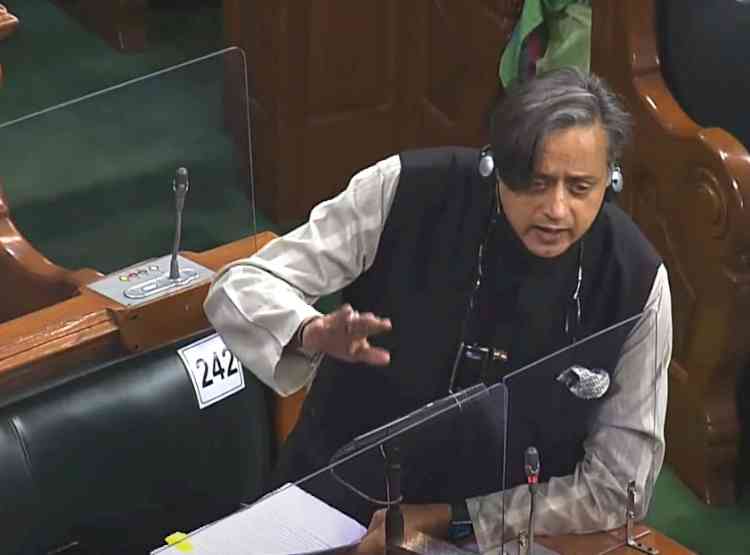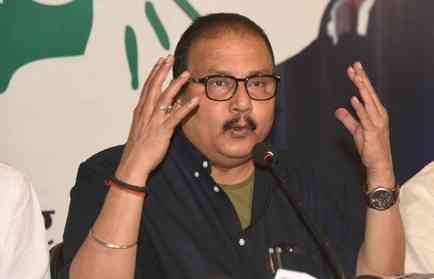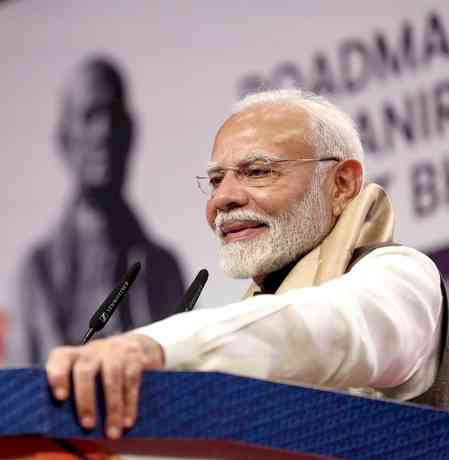Congress objects to linking Aadhaar with voter ID card
The Congress party has opposed the linking of Aadhaar with the voter ID card though the bill was passed in the lower house of the parliament on Monday

New Delhi, Dec 20 (IANS) The Congress party has opposed the linking of Aadhaar with the voter ID card though the bill was passed in the lower house of the parliament on Monday. The Congress' objection is that Aadhaar was meant for proof of residence and also for getting subsidy of the government, but the voter card is meant for citizenship.
Congress MP Shashi Tharoor said, "Aadhaar is only meant to be proof of residence, it is not the proof of citizenship. If you are in the position of asking for Aadhaar from the voters, all you are getting is a document that reflects residence, not citizenship and by this law you are potentially giving the vote to non-citizens".
Congress MP Manish Tewari said, "The statement of Objects and Reasons of The Aadhaar (Targeted Delivery of Financial and Other Subsidies, Benefits and Services) Act, 2016 allows the use of Aadhaar Identification for subsidies, benefits, services, grants, wages and other social benefit schemes, but the Section 4 of the bill amends Section 23 of the Representation of the People Act, 1950 to mandate the use of Aadhaar for voter identification. Voting is a legal right and not a benefit or service. Therefore, linking the Aadhaar with Voter ID is beyond the scope of Aadhaar legislation."
Tewari said that the Aadhaar has time and again proven itself to be vulnerable to data breaches including the data leak of over 50 lakh Aadhaar users on the 'dark web'. It contains additional information pertaining to the individual's geographic location, and through external linkages, financial and other information about the individual.
The linking of Aadhaar to Voter ID allows profiling of voters which will subsequently allow for targeted campaigning which is violative of the right to vote with adequate information guaranteed under the Indian Constitution.
Tewari further said that it also violates the Aadhaar Judgement and, "the aim to purify and de-duplicate the voter base is not backed by empirical evidence. On the contrary, this exercise is exclusionary as the Aadhaar system itself is riddled with inefficiencies with no corrective mechanism. In the affidavit given by UIDAI to the Supreme court in the KS Puttaswamy V UoI (2012), "UIDAI does not take institutional responsibility for the correctness of the information entering its database."
Tewari said that it could be a bigger plan to deregister voters and cited in a similar exercise named "National Electoral Rolls Purification and Authentication Programme (NERPAP)", 66 lakh voters were excluded from the voter lists in Karnataka.
"Thus, it violates the provision of Universal Adult suffrage provided under Article 325 and 326 of the Indian Constitution. It also violates the Test of Proportionality as the government has not considered other less restrictive, less exclusionary and equally effective alternatives," he said.
The Lok Sabha on Monday passed 'The Election Laws (Amendment) Bill, 2021' amid protest by the opposition parties.
The Bill seeks to link electoral rolls with the Aadhaar ecosystem. This will allow the electoral registration officers to seek the Aadhaar number of people who want to register as voters for the purpose of establishing the identity.


 IANS
IANS 










